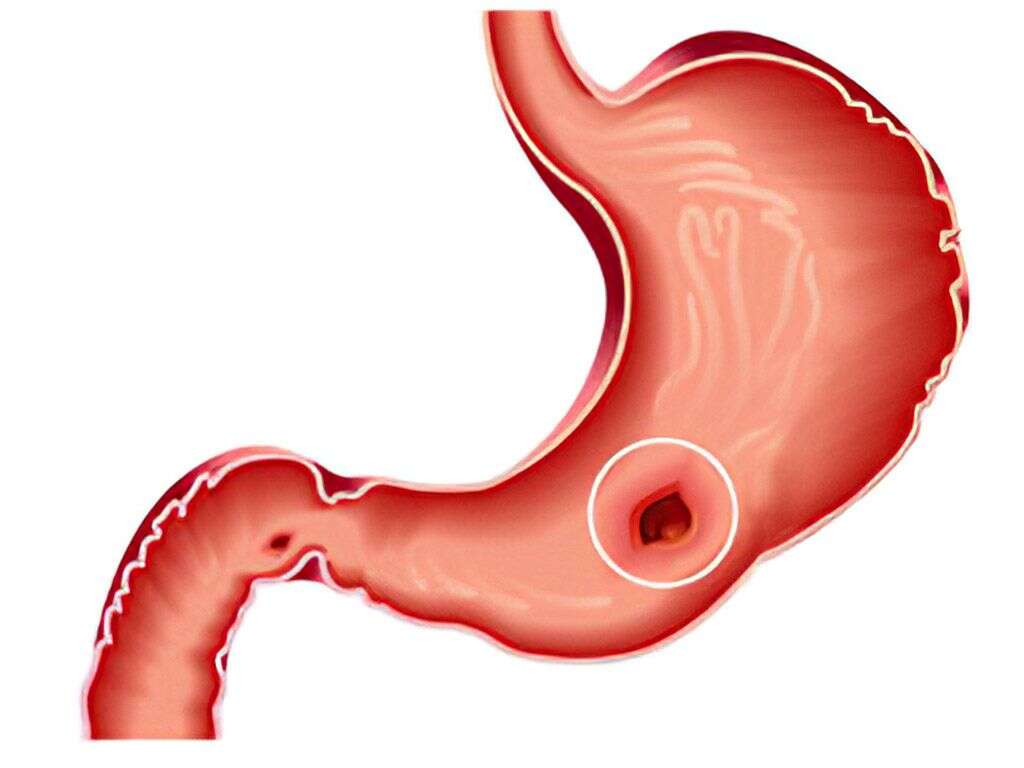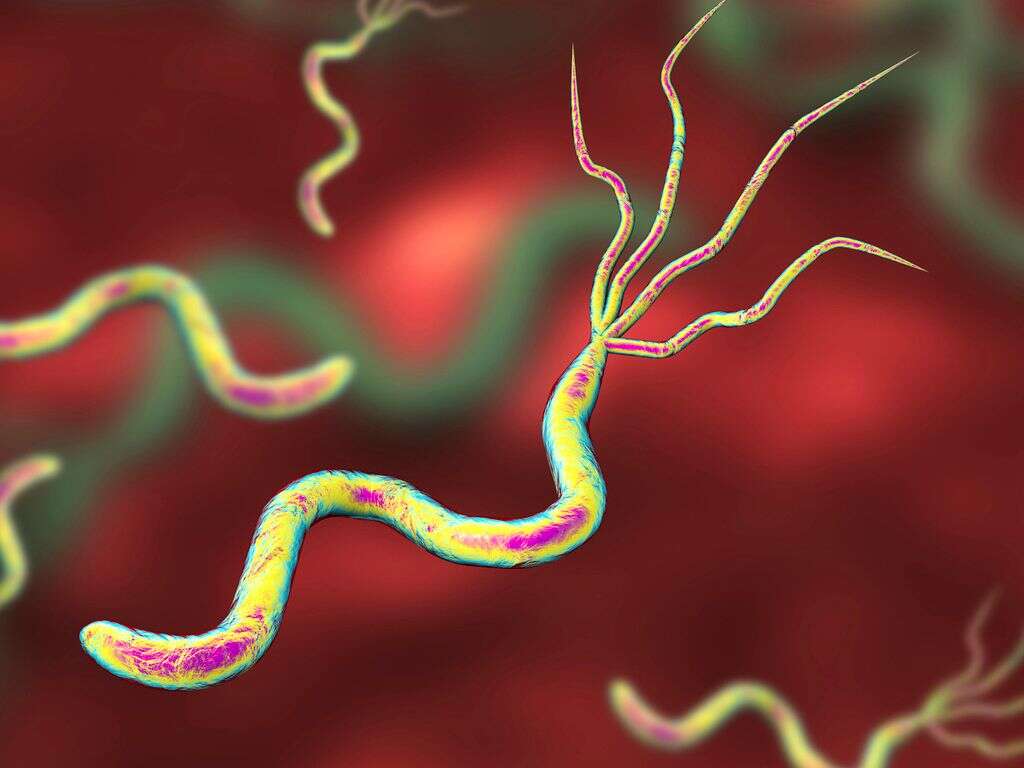What Is a Gastric Ulcer?
Ulcers are open wounds in the body. They can be caused by a wide range of factors and they can range considerably in severity. Mouth ulcers, for example, are quite common and are unlikely to do any harm. Some other ulcers, however, can pose a very real threat to the patient’s life in some cases.
How easy or difficult it is to treat ulcers can also vary significantly. It is important that they are treated because open wounds anywhere in the body leave us prone to infections and other potentially severe conditions. Among the hardest of ulcers to treat, and among the most common variety, are gastric ulcers.

1. Gastric Ulcers
As mentioned, ulcers can form pretty much anywhere on the body, including internally. They can even form on the inside of the stomach in what is known as a gastric ulcer. A similar type of ulcer, duodenal ulcers, form on the duodenum, which is a part of the small intestine. The two types are pretty much identical in terms of causes and symptoms.
Gastric ulcers can be very uncomfortable, although they are not usually dangerous. However, treatment is still recommended to help relieve the patient of their pain. Treatment is also advised because ulcers will cause potentially serious complications in a small number of cases.
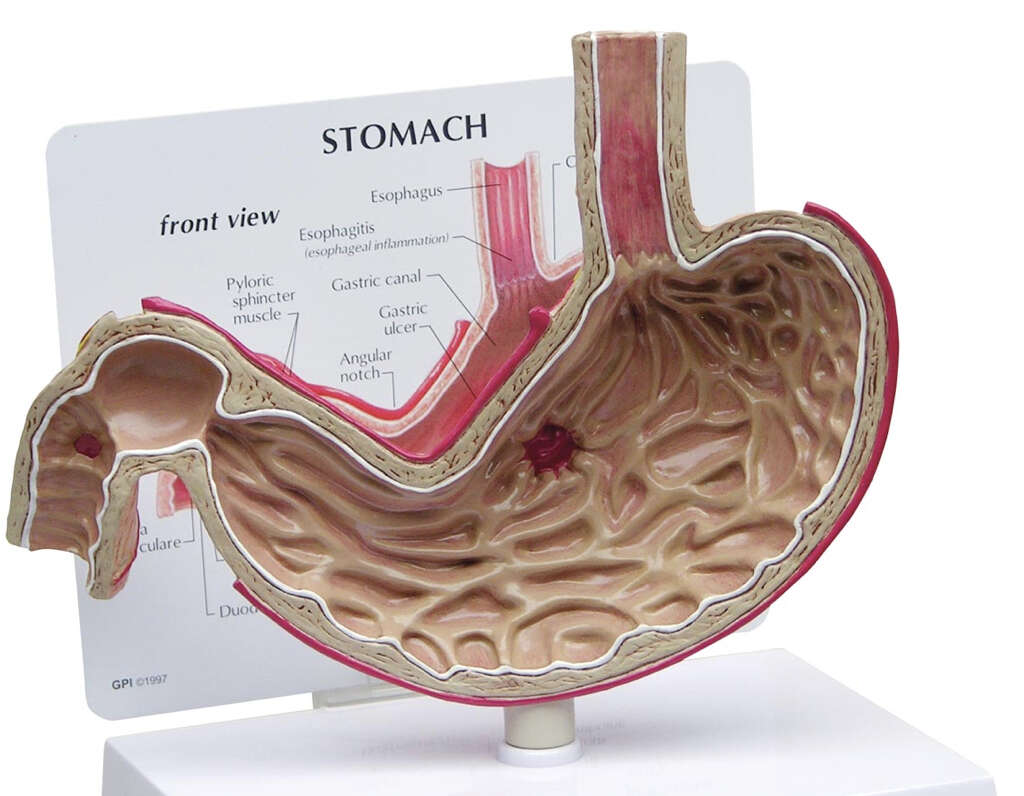
2. Causes
Gastric ulcers are usually caused by a bacterial infection, specifically Helicobacter pylori. This bacterium often resides in the stomach anyway, but it not usually a problem for us. Some medications can cause the lining of the stomach to become inflamed, and this can increase the risk of an infection occurring.
The acidity of the stomach also helps to protect us against infections internally. If the levels of acidity were to drop, then it can increase the likelihood of an infection taking hold. Likewise, too much stomach acid can also cause problems. It is often thought that eating spicy foods and prolonged stress can cause gastric ulcers. This is not likely to be the case, however, but they can make the symptoms worse.
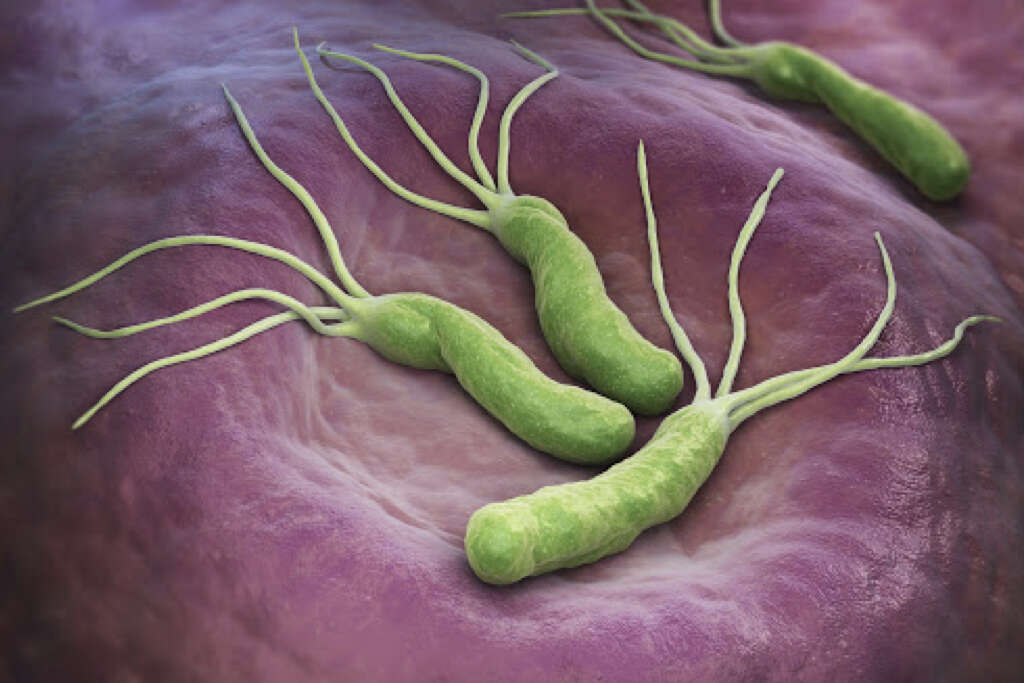
3. Typical Symptoms
Most people that have a gastric ulcer will not experience any symptoms. Once symptoms do arise, however, the patient is likely to feel pain in the abdomen area. The pain is often described as a burning sensation in the stomach. The pain is due to the acidic juices burning at the exposed stomach lining.
Patients with gastric ulcers will tend to worsen when they eat certain food. Other symptoms include bloating and feeling full sooner than usual. Acid reflux is another possible symptom, and the patient might also need to burp more frequently than usual. Nausea is another potential symptom, and it can cause the patient to vomit sometimes.

4. Severe Symptoms
Gastric ulcers symptoms can be uncomfortable, but are not usually something to be overly concerned about. If the ulcers develop into something more severe, however, then the symptoms can begin to worsen. For example, the more severe cases can cause the patient to experience a loss of appetite, and they can begin to lose weight rapidly.
Some patients will also have difficulty breathing, and they can also sometimes feel lightheaded. Stools can become dark in color and tar-like in texture due to internal bleeding, and blood might sometimes be visible in the patient’s stools. There may also be blood in the patient’s vomit, which can make it black or red in color.

5. Risk Factors
Just about anybody can develop ulcers, but some people are more likely to develop them than others. Those that are in a higher risk bracket include those that take certain medications, particularly NSAIDs. People that are older are also more likely to develop gastric ulcers than younger people are.
Drinking excessive alcohol is a contributing factor in some cases and it is recommended to drink in moderation only. People who smoke regularly are also in a higher risk category. The condition is more likely to become worse in people that eat a lot of rich foods, and those that experience prolonged stress.

6. Complications
In the more severe cases, a gastric ulcer can result in severe internal bleeding. This can lead to anemia, and the extent of blood loss will be very dangerous in some cases. If anybody patient does notice signs of blood in their vomit and/or in their stools, then they should arrange to speak with their doctor as soon as they can.
Gastric ulcers can also sometimes cause food to become trapped in the digestive system, which also has the potential to be serious. There is also a chance of peritonitis, which is an infection of the internal lining of the abdomen.
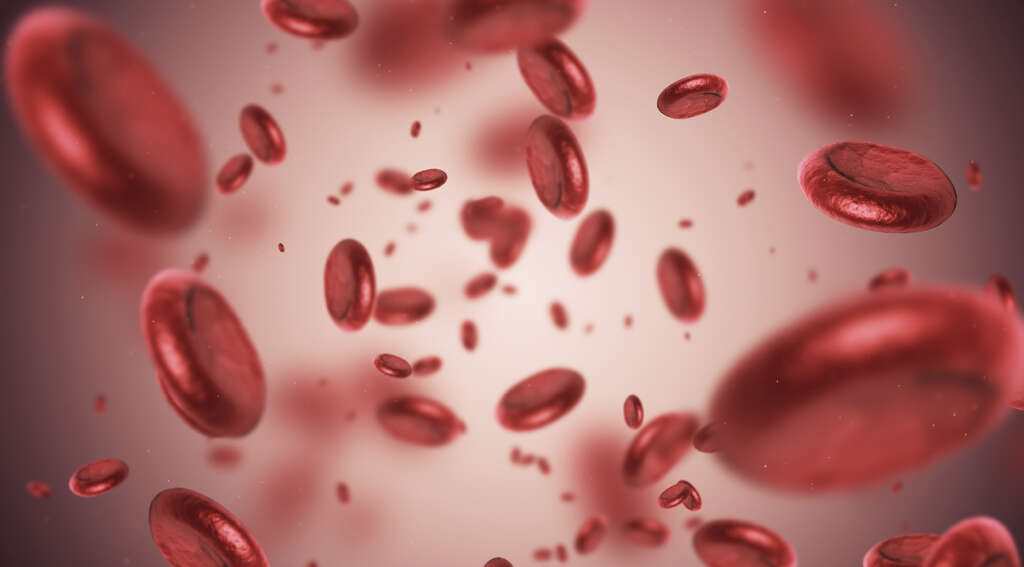
7. Refractory Ulcers
One of the biggest problems with gastric ulcers is that they can be very difficult to heal. A gastric ulcer that won’t heal despite treatment is known as a refractory ulcer. A fairly common reason why an ulcer may not be healing is that the patient has not been following instructions in regard to taking their medication.
Other possible reasons include not avoiding activities that will prevent the ulcer from healing. This can mean continuing to smoke and drink, and continuing to take certain medications. Some medical conditions, including cancer, can also be a cause of gastric ulcers. Infections from certain pathogens can also be harder to treat than others.
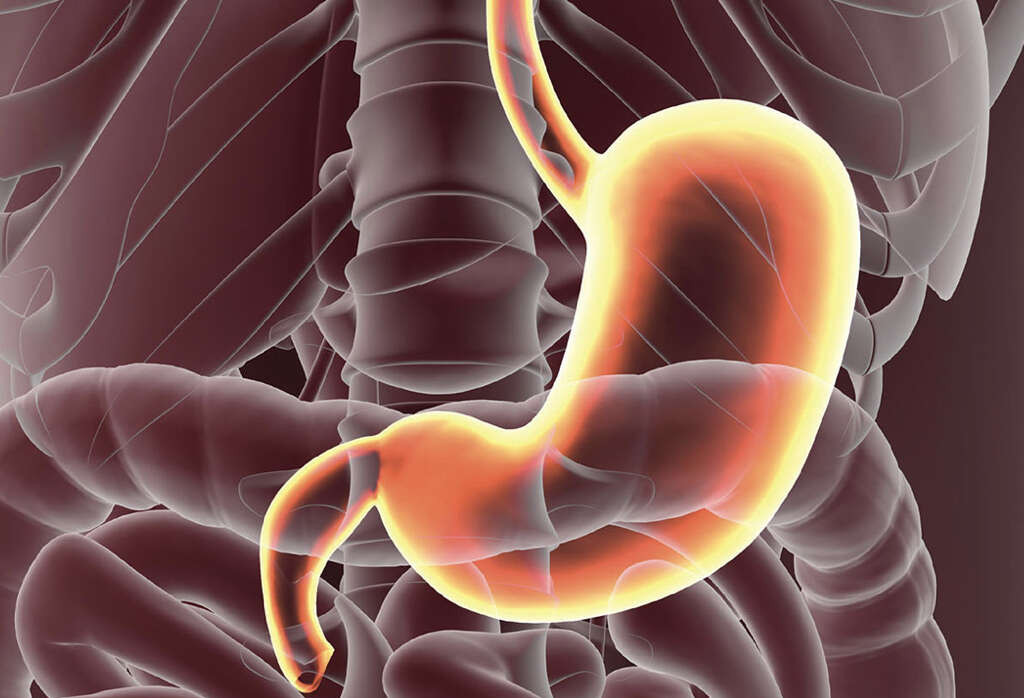
8. Prevention
Protecting yourself from H. pylori infections can help to lower your risk of developing a gastric ulcer. This means washing your hands regularly, keeping surfaces clean, and being particularly careful when preparing food and drinks. This is not a sure way of preventing it, and doctors are not even sure exactly how it is spread, but it can at least help to move the odds in your favor.
Avoiding using certain medications can also help to decrease your risk of getting gastric ulcers. You should speak with a doctor first if you do need to take any medication and you are at risk of developing gastric ulcers.

9. Diagnosis
One of the first things your doctor is likely to do is to ask about your symptoms, your medical history, and ask about any medication you may be taking. If a gastric ulcer is suspected, further tests will need to be performed to reach a confirmed diagnosis. This will often involve a breath test that will then be sent to a lab to look for H. pylori.
In some cases, an endoscopy might be used. This involves passing a very small camera into your stomach to help look for the ulcer visually. If an ulcer is found, then a biopsy may be taken for analysis to be sure of what is causing the ulcer. A type of X-ray may also be used to help doctors get an image of the patient’s digestive system.
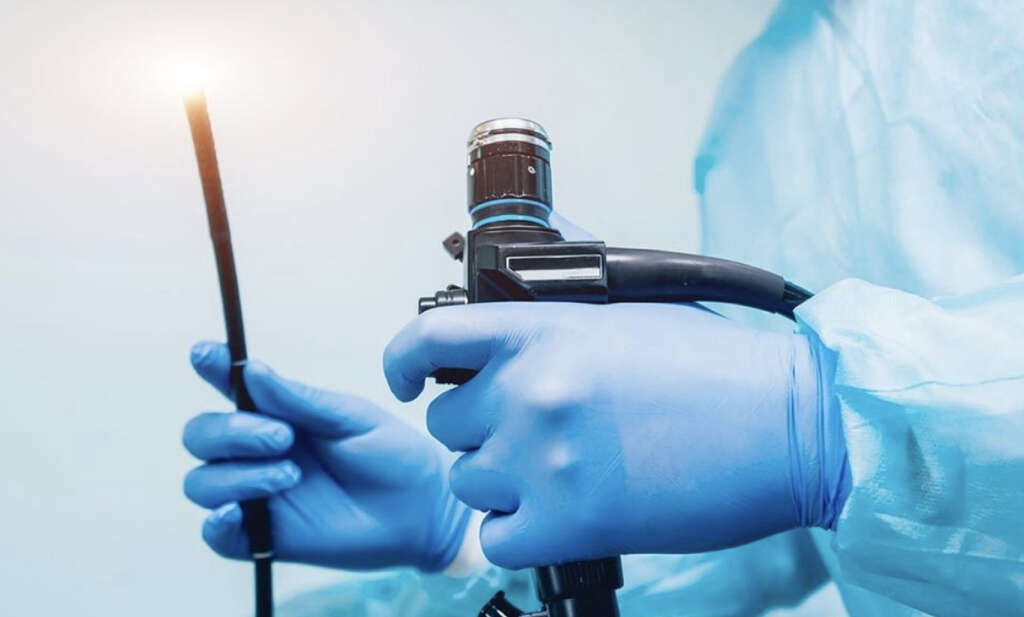
10. Treatment
If the ulcer is caused by H. pylori, then it is likely to be treated with antibiotics. It will also be necessary to reduce the patient’s use of certain medication as much as possible. The patient will also need to avoid eating certain foods, while smoking and excessive drinking should also be limited, or eliminated altogether.
It may also be necessary for the patient’s stomach acidity to be reduced. This can mean the use of medication that can help neutralize the acidity of the stomach’s juices, and it can also mean medication that will help slow down their body producing acidic juices. Surgery may be necessary in the more severe cases.




